KPop Demon Hunters Sing-Along


KPop Demon Hunters Sing-Along
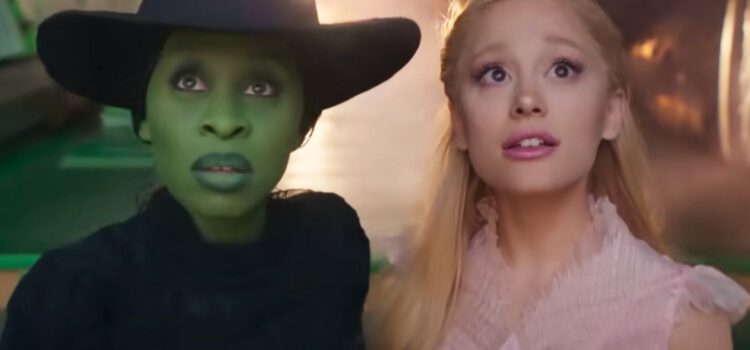
By Lynn Venhaus
A dazzling spectacle based on the 2003 Broadway musical fantasy, “Wicked” is overproduced and padded with unnecessarily stretched out musical numbers and extended scenes to present the popular culture phenomenon as only the first act in a 2 hour, 30-minute film.
After years in development, this long-awaited adaptation surely could have been pruned without affecting the story arc. The second act, “Wicked: Part II,” is set for a Nov. 21, 2025, release. Did it need to be this long? No. Is it worth your time? Yes.
With ‘wow factor’ production values and sensational performances, this vivid re-imagining of the Land of Oz is a must-see event best-suited for the big screen.
After opening Oct. 30, 2003, on Broadway, the beloved musical captured theatregoers’ fancy with its imaginative and sharp-witted story about the unlikely friendship between the Glinda the Good Witch of the North and Elphaba the Wicked Witch of the West. It draws from the familiar mythology based on the classic 1939 film “The Wizard of Oz” and L. Frank Baum’s series of 14 novels written between 1901-1917.
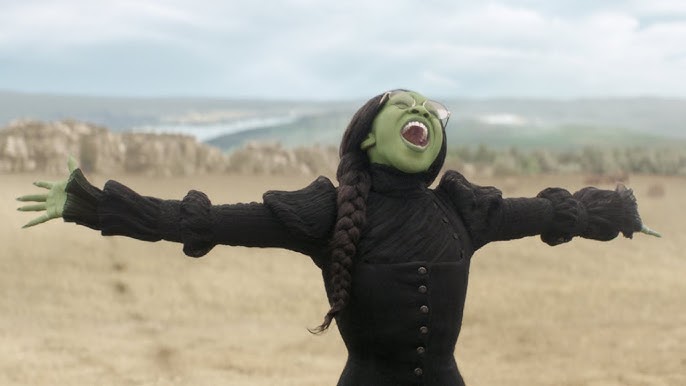
However, it is a prequel to those events, and takes place, for the most part, before farmgirl Dorothy Gale arrives from Kansas. But ‘Wicked,’ you see, is only a perception, and a misunderstood one at that. This inspired take fascinates with the green-skinned outcast Elphaba attending Shiz University, where she is taken on an unusual path, which leads to discovering her magical powers, and develops a bond with her mean-girl opportunist roommate Glinda, first known as “Galinda.”
As college students, the pair are exact opposite in looks, temperament, personality and values. Loosely based on Gregory Maguire’s 1995 novel, the screenplay is adapted by Winnie Holzman, the original musical book writer, who smartly gave us so much to ponder, and and Dana Fox, whose most recent credit is “Cruella.” Holzman created the TV series “My So-Called Life” and wrote for the landmark TV series “thirtysomething” and “Once and Again.”
The centerpiece is the glorious songs – those heartfelt, soaring, beautifully crafted numbers from virtuoso composer-lyricist Stephen Schwartz. He started his acclaimed five-decade career with “Godspell” in 1970, and has gone on to create “Pippin,” “Children of Eden,” “The Hunchback of Notre Dame,” “The Prince of Egypt,” and win an Oscar for “Colors of the Wind” from “Pocahontas.” This is arguably his masterpiece.
The film’s biggest strength is its perfectly cast triple-threat performers – Cynthia Erivo as Elphaba Thropp, Ariana Grande-Butera as Glinda Upland and Jonathan Bailey as Fiyero Tigelaar, a handsome prince whose subplot is best not spoiled.
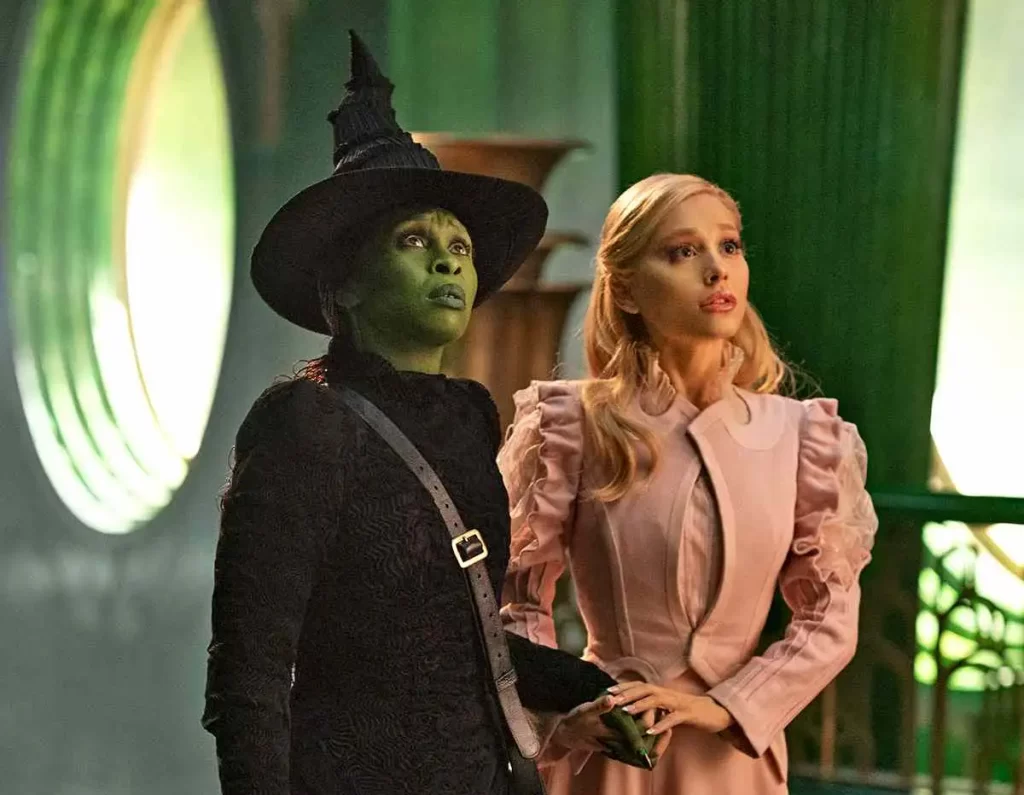
Erivo’s knockout voice is her superpower. She won a Tony Award in 2016 as Celie in “The Color Purple” revival, the only non “Hamilton” cast member to win a musical acting trophy that year. She proves herself to be a gifted actress, as she leans into sympathetic Elphaba’s differences as a proud badge of honor, especially in her newfound activism against injustice.
Grande has sold more than 90 million records as a pop star and appeared on Nickelodeon and Broadway. If you’ve seen Grande host “Saturday Night Live,” you know she has terrific comic timing and unforced charm. As a singer, she has a four-octave vocal range and in this role, she inhabits the spoiled rich girl with a self-deprecating humor. She looks dainty, but there’s an intriguing power and intelligence behind the bubbly façade.
The charismatic Bailey, Emmy-nominated for “Fellow Travelers,” is known as the oldest son Anthony in the “Bridgerton” TV series, but in England, he is also an accomplished musical theater performer. He won an Olivier Award as Best Supporting Actor in a Musical for playing Jamie in the revival of “Company” in 2018. Fleet-footed and a nimble vocalist, he gives Fiyero an allure that wasn’t initially apparent on stage. (Fun fact: St. Louis’ own Norbert Leo Butz, two-time Tony winner, originated the role in its San Francisco tryout and on Broadway).
Outstanding in supporting roles are Jeff Goldblum as the morally compromised Wizard of Oz, who handles “A Sentimental Man” quite nicely, Michelle Yeoh as no-nonsense Shiz headmistress Madame Morrible, and Peter Dinklage, in a voice-over, as an animal professor, Dr. Dillamond, who’s frightened in “Something Bad,” tipping us off to sinister political forces (shades of authoritarianism and fascism ahead).
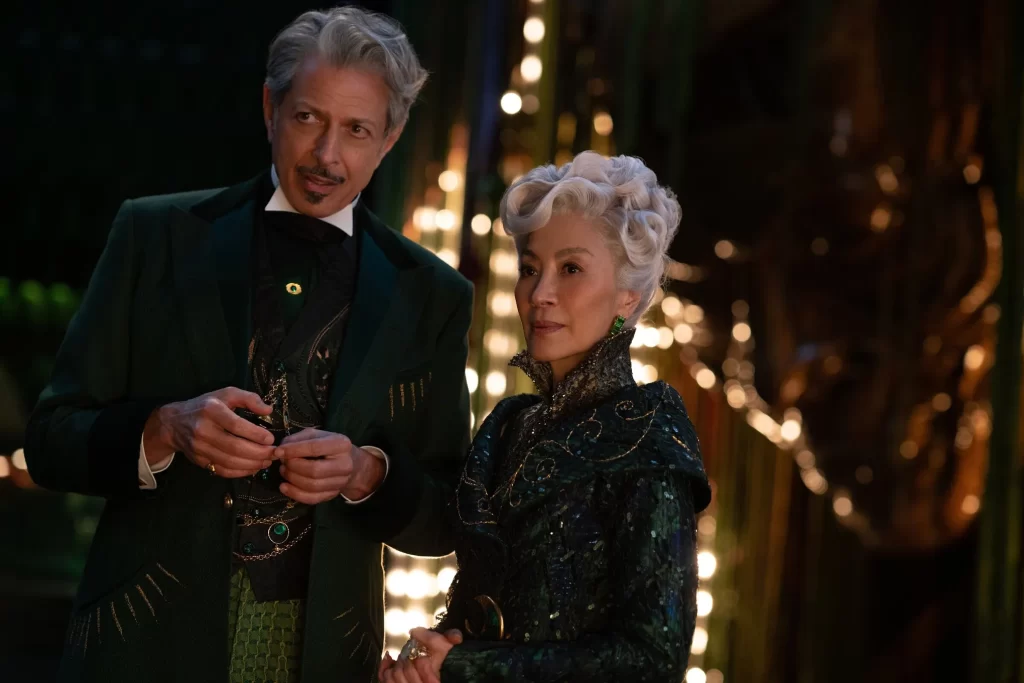
There are more-to-develop turns by Ethan Slater as Boq Woodsman, a Munchkin in love with Glinda, and Marissa Bode as Nessarose, Elphaba’s paraplegic younger sister. Slater was Tony-nominated and won a Drama Desk Award for his role as SpongeBob SquarePants in the 2017 Broadway musical. Stay tuned for some interesting twists with these two in Act 2.
New roles include Glinda’s fawning sycophants — Bowen Yang of SNL fame is Pfannee and Bronwyn James of CBS’ “Ghosts” is ShenShen.
As one who has seen the stage musical seven times, with an inaugural voyage to Chicago for the first national tour in May 2005 and the remainder at the Fabulous Fox in St. Louis, the film is faithful to the source material. (BTW, “Wicked” is considered “St. Louis’ favorite musical” after record-breaking runs here).
“One Short Day” is a grand introduction to the breathtaking art-deco Emerald City, Erivo’s emotional gravitas is displayed in “I’m Not That Girl,” and her humorous duet with Grande on a crisply delivered “What Is This Feeling?” is a highlight. Grande also shines in the peppy “Popular,” her signature song.
But the dramatic opener “No One Mourns the Wicked,” a too-heavy CGI-enhanced “The Wizard and I,” and an acrobatic “Dancing Through Life” set on library staircases are overstuffed. The choreography is in the contemporary style of elaborate and athletic dance moves with distinctive razzle-dazzle that is mega-staged for maximum effect.

That said, the defining showstopper, “Defying Gravity,” is everything you want it to be, an enthralling way to end, just before the curtain comes down on stage, but here with a “To be continued” card stunning the audience who doesn’t realize it’s only half.
Now the fourth longest-running musical of all-time, “Wicked” continues to draw packed houses in theaters around the world. While plans for a film adaptation started in 2012, the project did not kick off in earnest until 2021.
Jonathan M. Chu was hired to direct, after his successes with “Step Up 2 In the Streets,” “Step Up 3D,” “Crazy Rich Asians” and “In the Heights.” That was when it was decided to split the film into two parts to “meet the demands of the story’s epic scope and to expand upon the journeys of and relationships between the characters, without cutting any songs and major plot points” (I quote press here).
The second half is when more dark secrets and identities will be revealed, and features the moving “For Good” number. (No spoiler alert here, nor will I reveal cameos).
Highlights of Part 1 include the magnificent costume designs by Paul Tazewell, Tony Award winner for “Hamilton.” He must be the frontrunner for year-end awards, for each intricate outfit is stunning in detail.

The visual effects, while often over-the-top, are eye-popping. With today’s audiences conditioned for blockbuster franchise films, such as the Marvel Cinematic Universe, Harry Potter series, and new “Star Wars” chapters, these are the flamboyant excesses people expect, but I find them overdone.
The everlasting appeal of “Wicked” will always be as a timeless tale of love and friendship, and its brilliant way of presenting the proverbial “two sides to every story.” Those who cherish the musical can find moments to savor.
“Wicked” is a 2024 musical fantasy directed by Jon Chu and starring Cynthia Erivo, Ariana Grande-Butera, Jonathan Bailey, Jeff Goldblum, Michelle Yeoh, Ethan Slater, Marissa Bode, Bowen Yang and Bronwyn James. It is rated PG for some scary action, thematic material and brief suggestive material, and its runtime is 2 hours, 40 minutes. It opens in theatres Nov. 22. Lynn’s Grade: B+
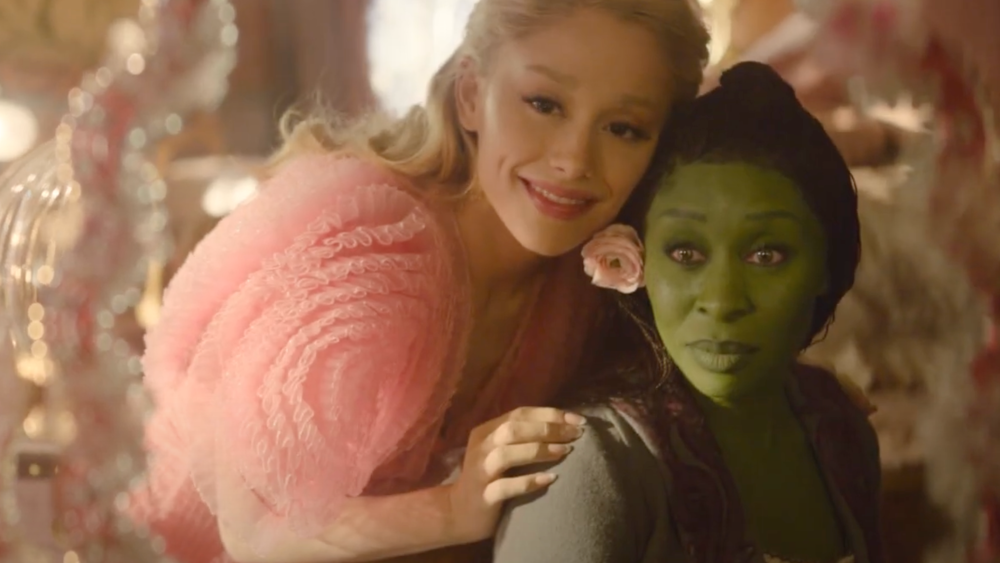

Lynn (Zipfel) Venhaus has had a continuous byline in St. Louis metro region publications since 1978. She writes features and news for Belleville News-Democrat and contributes to St. Louis magazine and other publications.
She is a Rotten Tomatoes-approved film critic, currently reviews films for Webster-Kirkwood Times and KTRS Radio, covers entertainment for PopLifeSTL.com and co-hosts podcast PopLifeSTL.com…Presents.
She is a member of Critics Choice Association, where she serves on the women’s and marketing committees; Alliance of Women Film Journalists; and on the board of the St. Louis Film Critics Association. She is a founding and board member of the St. Louis Theater Circle.
She is retired from teaching journalism/media as an adjunct college instructor.
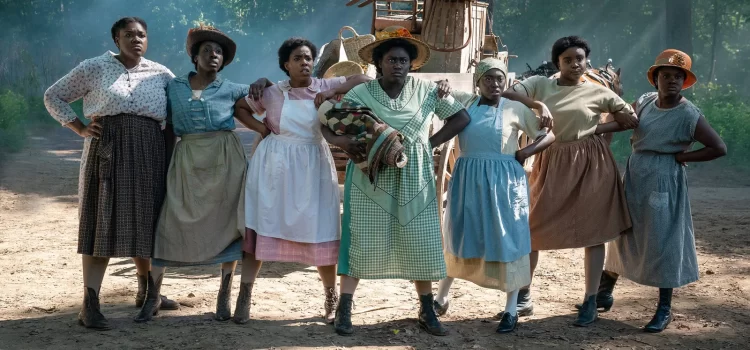
By Lynn Venhaus
A strong sense of community, sisterhood and triumph over adversity runs through the big, splashy movie musical adaptation of “The Color Purple.”
What an inspiration Alice Walker’s Pulitzer Prize winning 1982 novel was 41 years ago, and its historic significance has not diminished. It told Celie’s powerful story through letters to her sister and children, which isn’t the easiest type of source material to adapt for film, nor are the horrors that she has endured. But a different presentation is a new way to see how one woman’s journey to self-realization resonates.
A determined Celie Harris (Fantasia Barrino) faces many hardships in life, but through the years, finds extraordinary strength and hope, and learns self-acceptance.
Purple symbolizes strength, transformation, power, wisdom, bravery, and all meanings can be applied in this version.
Celie’s tough path started in 1909 in rural Georgia. She’s a poor, black 14-year-old girl who has delivered two babies, impregnated by the man she thinks is her father. They are taken away from her.
Against her will, she has been given to a widower Albert “Mister” Johnson, who emotionally and physically abuses her. She must serve him and his unruly children. As the heartless husband perpetuating a long cycle of suffering, Colman Domingo doesn’t soften the villainous aspects. However, after he is cursed, you do see a gradual change.
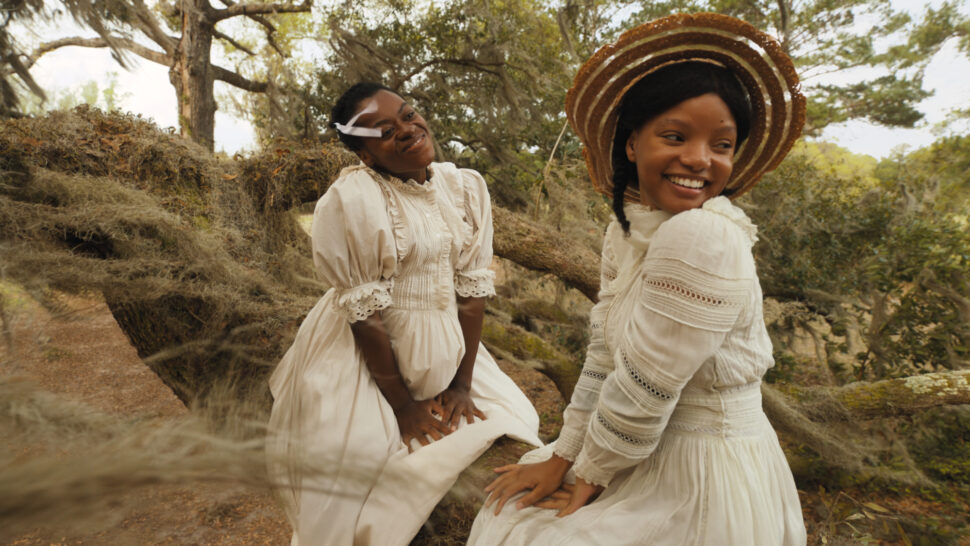
Celie’s endurance through deep-rooted cruelty and oppression is heart-tugging, and Barrino depicts her sorrows, love and indomitable spirit with courage and grace.
Fantasia, an American Idol winner who performed the role for eight months on Broadway, portrays Celie’s faith as unwavering through tough times, and how she relied on her beloved sister Nettie (Halle Bailey) and her church to raise her up. Her kindness will eventually lead to good things.
Things change, through the people she meets, but she also changes people. The nurturing Celie meets the glamorous and sophisticated nightclub chanteuse Shug Avery, and they have a deep bond even though the singer has an ongoing affair with Mister and a marriage to Grady (Jon Batiste). Taraji P. Henson is a flamboyant and fiery Shug, and sashays admirably through “Push the Button,” In a role added for the movie, David Alan Grier plays her father, Rev. Avery.
One of Mister’s grown children, Harpo (Corey Hawkins) , marries Sofia, and Danielle Brooks is marvelous as the strong-willed free spirit, known for her independence and speaking her mind, with her phrase: “Hell, no!” even a song title that’s a showstopper. She cannot be ‘tamed,’ and her outspokenness will bring her harm. Brooks reprises her Broadway role and is the dynamo here.
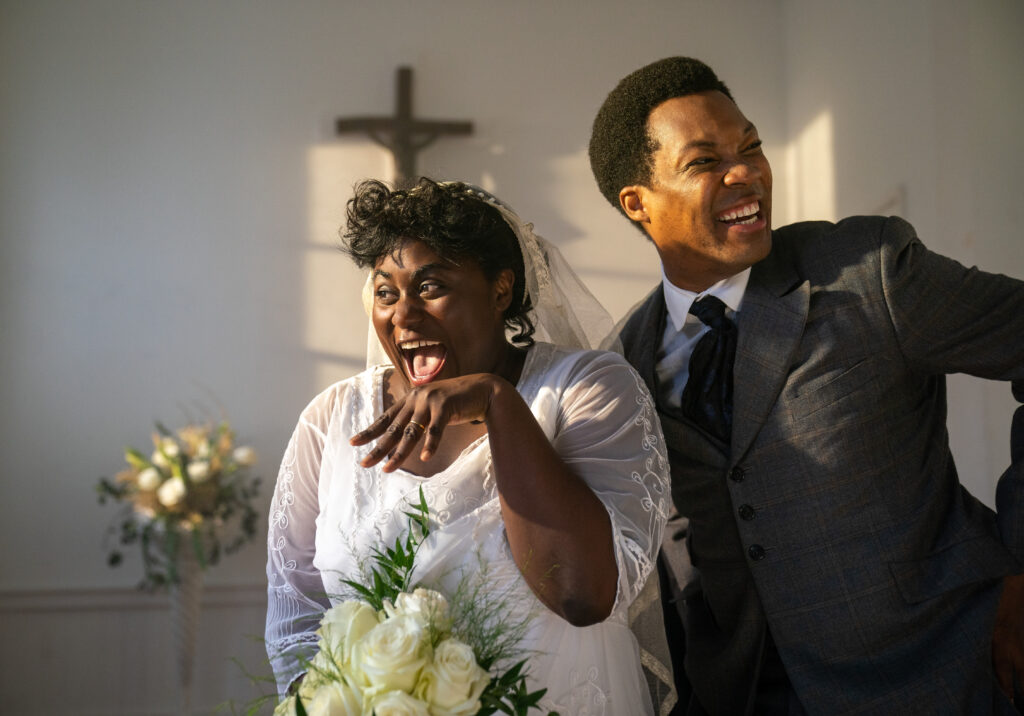
As the story has evolved from book to movie to musical to movie musical, the familiar main points haven’t changed, although how much time is devoted to turning points has varied.
For whatever reason a movie that had been smoothly running along feels rushed and haphazard in its last act, because of choppy storytelling and erratic pacing. But overall, director Blitz Bazawule makes the theatrical elements of a stage play cinematic.
Dan Lausten’s cinematography, Paul Denham Austerberry’s production design and Francine Jamison-Tanchuck’s costumes — 40 years of style — are vibrant components of the ultimately uplifting and very spiritual essence of this work.
The dynamic ensemble deeply feels their experiences, but the film finds its emotional center in the musical numbers. The score is an appealing mix of gospel, jazz, ragtime, blues, and African beats, with the Broadway songs by Brenda Russell, the late Allee Willis, and Stephen Bray that bring out the purpose, yearnings and period of these early 20th century lives. Sixteen songs are from the stage musical and there are several new ones: “Keep It Movin'” (written by Halle Bailey) and “Superpower.”
Mega-talented Kris Bowers composed the film’s score, and Fatima Robinson’s choreography is joyous.
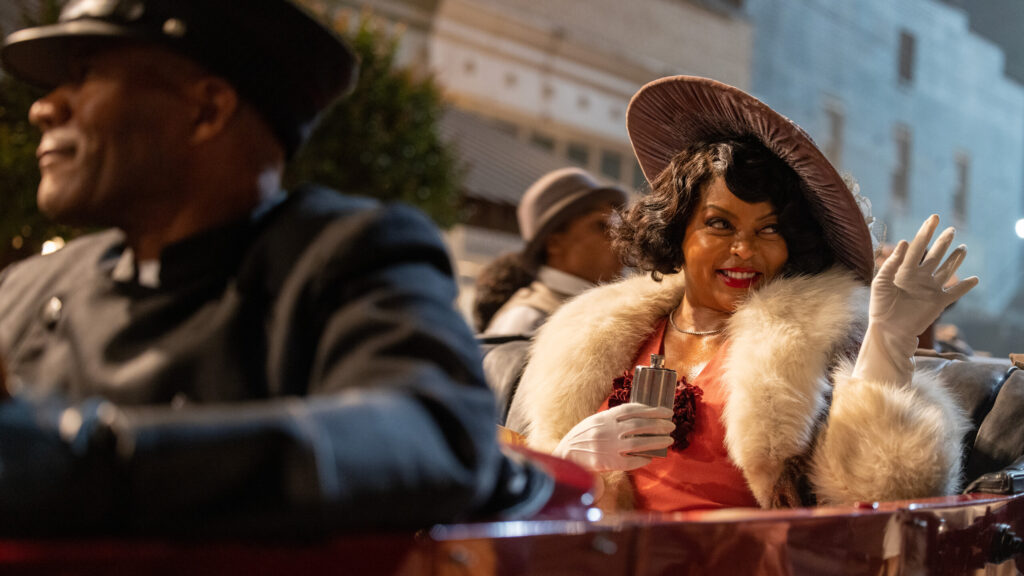
Steven Spielberg directed the first adaptation – a moving 1985 film, which famously was nominated for 11 Oscars, but didn’t win any. Spielberg is among the producers of this version, so is Quincy Jones, who scored the original, and so is Oprah Winfrey, who was Oscar-nominated as Sofia.
Jones and Winfrey helped launch the 2005 musical on Broadway, which was revived in 2015, and this is a combination of the two. While this version, adapted by Marcus Gardley from Marsha Norman’s book, doesn’t shy away from Celie’s harsh life, its sisterhood focus sweetens the story.
Over the course of several decades, what the women learn, how they grow and overcome obstacles will tug at our hearts, so that the mercy shown in the second act leads to triumph– and somewhat of a redemption for Mister.
The heart and soul of any version is Celie, and it’s no fluke that both actresses who played Celie on Broadway — LaChanze in the original 2005 production and Cynthia Erivo in the 2015 revival — won Tony Awards (Director John Doyle’s re-imagining also won the Tony Award for Best Revival). When Fantasia sings the powerhouse “I’m Here,” she puts an exclamation point on a sensational debut.
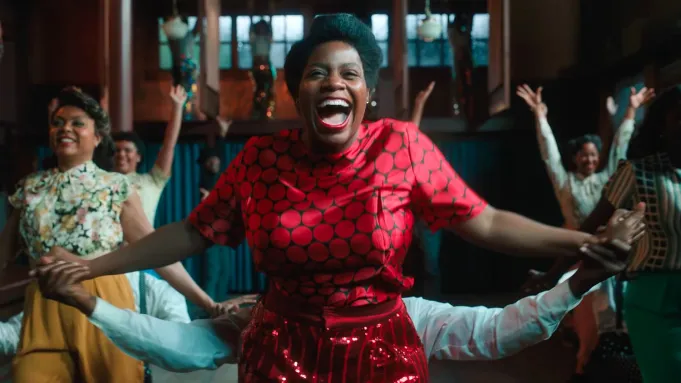
Yes, it’s gut-wrenching, but it’s also about healing, resilience, and the mighty power of love. Throughout our history, we have learned that we should never forget what’s happened before, those teachable moments that make us better people.
The ensemble is top-tier in every way. Singers Ciara and H.E.R. are elder Nettie and Squeak respectively, and Louis Gossett Jr. has a memorable turn as Ol’ Mister. Even the brief parts contribute a sense of faith, hope and charity that church communities share.
If you believe, as I do, that if you spread light and love in the world, and are a good person, then the universe responds in kind. That is ultimately why Celie’s story is relatable. She never gave up her belief in goodness, and finally realized her worth as a human being.
While musicals are a hard sell as movies these days, “The Color Purple” has enduring appeal for what it says and what it means. The cast makes this version shine, for they bring emotional truth to each role.
“The Color Purple” is a 2023 musical directed by Blitz Bazawule and starring Fantasia Barrino, Colman Domingo, Danielle Brooks, Corey Hawkins, Taraji P. Henson, Halle Bailey, Ciara, Jon Batiste, Gabriella Wilson (H.E.R.), Louis Gossett Jr., David Alan Grier. It is rated PG-13 for mature thematic content, sexual content, violence and language, and runs 2 hours, 20 minutes. It opens in theaters Dec. 25. Lynn’s grade: B+
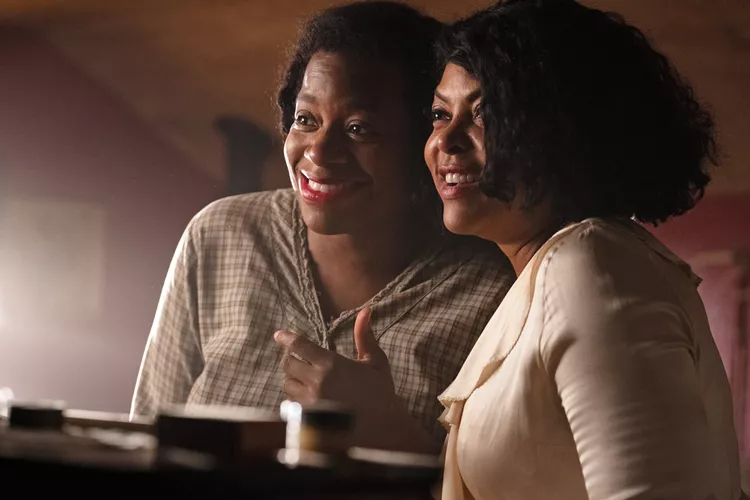

Lynn (Zipfel) Venhaus has had a continuous byline in St. Louis metro region publications since 1978. She writes features and news for Belleville News-Democrat and contributes to St. Louis magazine and other publications.
She is a Rotten Tomatoes-approved film critic, currently reviews films for Webster-Kirkwood Times and KTRS Radio, covers entertainment for PopLifeSTL.com and co-hosts podcast PopLifeSTL.com…Presents.
She is a member of Critics Choice Association, where she serves on the women’s and marketing committees; Alliance of Women Film Journalists; and on the board of the St. Louis Film Critics Association. She is a founding and board member of the St. Louis Theater Circle.
She is retired from teaching journalism/media as an adjunct college instructor.
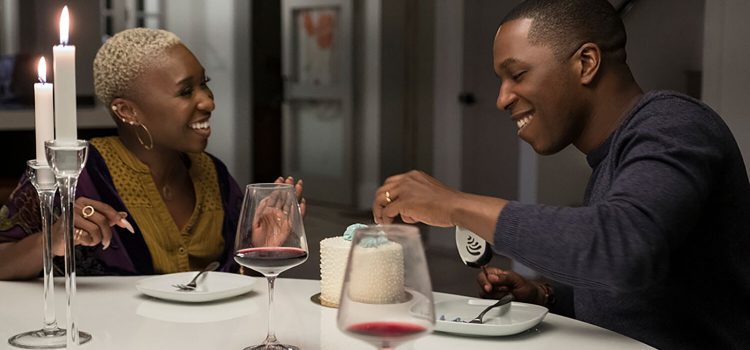
By Lynn Venhaus
Typically, movies about time travel make my head hurt because I overthink things and raise too many questions as I try to figure out the logic.
No need to waste precious brain cells on determining what’s going on in “Needle in a Timestack” because most of it doesn’t make any sense anyway.
In the ‘near future,’ time “jaunting” has become a luxury afforded the wealthy in this sci-fi romance, where architect Nick (Leslie Odom Jr.) is worried that his soulmate wife Janine (Cynthia Erivo) won’t be in his memories because of her ex-husband and his former friend Tommy (Orlando Bloom) messing with altering events in time, which is called “phasing,” and is disruptive in multiple facets of life. Can he stop it or manipulate time to make sure she is in his life?
And that’s a shame because the cast is full of likable performers that you usually want to root for, but their characters are vapid and spout ridiculous psychobabble about love. The two couples are such ciphers lacking much personality and possess all the trappings of comfortable modern life, so what’s the problem? Or, for that matter, the point?
Based on a short story by Robert Silverberg that was first published in the June 1983 issue of Playboy, he had previously published a collection of ten short stories under the same title in 1966 and decided to reuse the title for this story.
Let’s count the ways this project screams ‘misguided.’ For starters, John Ridley, Oscar winner for the adapted screenplay of “12 Years a Slave,” squandered energy on rewriting a story that does not translate well nearly 40 years later, given how there is such a gap between the 1 percenters and the “have-nots” – it smacks of privilege and one more thing to resent the “haves” about.
Surprisingly tone-deaf, the script is superficial in its portrait of married couple Nick and Janine as well as their prior significant others Tommy (Orlando Bloom) and Alex (Freida Pinto).
For all the talk of forever love, Nick and Janine sure don’t look happy. He’s an architect and she’s a photographer, and they live in an airy, ultra-modern home straight out of Architectural Digest.
Nick is consumed by thinking Tommy is trying to snare Janine, but Nick is quite a glum malcontent – and we get generic shots of him not looking happy.
And when a big phasing happens, whoa – he’s back with his beautiful girlfriend Alex – and she seems miserable because he’s such a mopey guy.
Tony winners Leslie Odom Jr. and Cynthia Erivo – he for “Hamilton” and she for “The Color Purple,” are much in demand after Oscar nominations – he for “One Night in Miami” and she for “Harriet.”
However, two premier vocalists do not even team up for a song post credits.
Orlando Bloom’s character is underwritten and puzzling. One phase has him behaving like an entitled rich guy and the second wave turning him to benevolent best bud following his bliss by pursuing his dream, being with the girl of his dreams and concern about his pal Nick.
And wouldn’t these phasings that alter people’s lives cause tremendous chaos in the real world?
Nick’s sister Zoey – a marvelous turn by Jadyn Wong, a bright spot, pays a lot of money to tamper by switching a friend’s tragic loss, but consequences, while threatened, appear to be random or non-existent.
And where are we? We are in a never-mentioned big city, and as the film was made in British Columbia, I assume it is Vancouver, but why assume? It just seems to be plastic and slick without a reason to stay engaged.
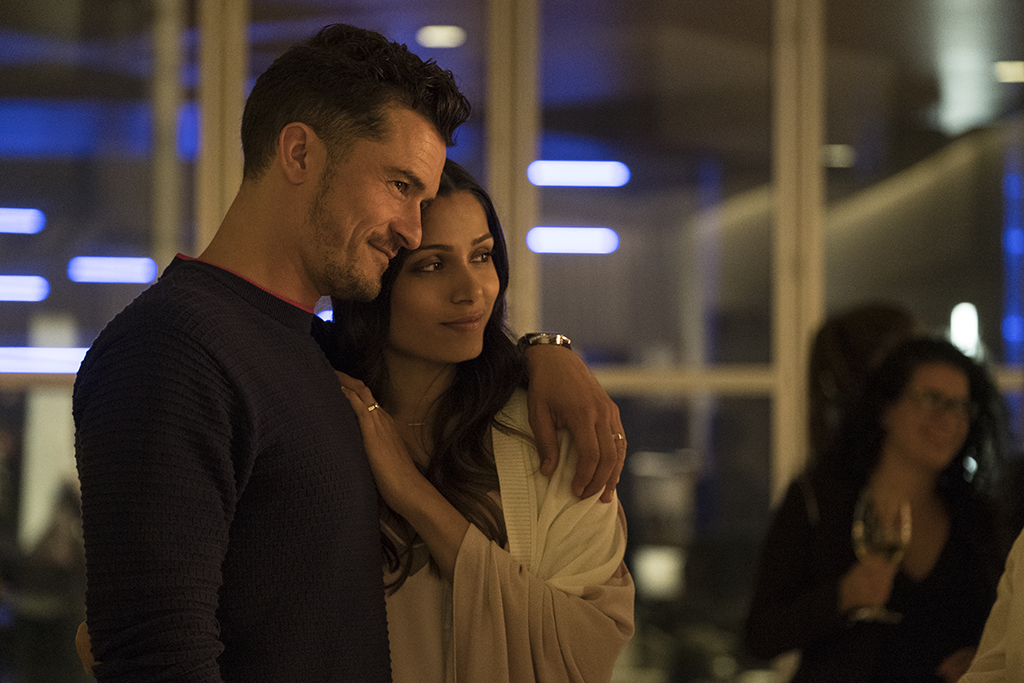
Trying to explain this is indeed a head-scratcher. Love is a circle. Let’s move on.
“Needle in a Timestack” is a 2021 science-fiction romance directed by John Ridley and starring Leslie Odom Jr., Cynthia Erivo, Orlando Bloom and Freida Pinto. It is rated R for some language and its run time is 1 hour, 51 minutes. It opened in theaters and was available on digital Oct. 15; and on DVD, Oct. 19. Lynn’s Grade: D.

Lynn (Zipfel) Venhaus has had a continuous byline in St. Louis metro region publications since 1978. She writes features and news for Belleville News-Democrat and contributes to St. Louis magazine and other publications.
She is a Rotten Tomatoes-approved film critic, currently reviews films for Webster-Kirkwood Times and KTRS Radio, covers entertainment for PopLifeSTL.com and co-hosts podcast PopLifeSTL.com…Presents.
She is a member of Critics Choice Association, where she serves on the women’s and marketing committees; Alliance of Women Film Journalists; and on the board of the St. Louis Film Critics Association. She is a founding and board member of the St. Louis Theater Circle.
She is retired from teaching journalism/media as an adjunct college instructor.
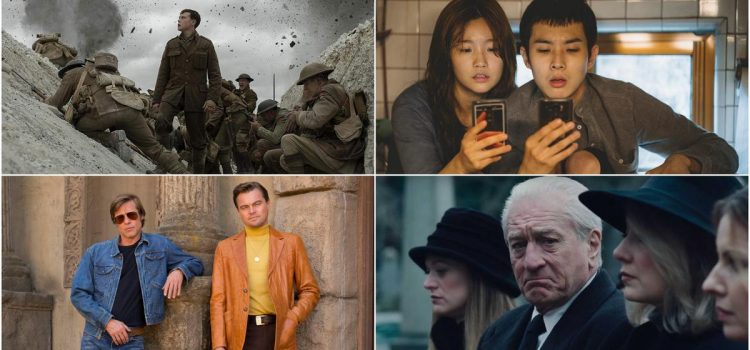
By Lynn Venhaus
We still have a race for Best Picture and Director, as we try to gauge the
momentum going into Sunday. Will it be “Parasite” or “1917,” or will fading
frontrunner “Once Upon a Time…in Hollywood regain its luster? After all,
Hollywood loves movies about Hollywood.
The 92nd Academy Awards take place Feb. 9, with ABC broadcasting red carpet live coverage at 5:30 p.m. and the ceremony underway at 7 p.m. CST. This year is the second in a row where there is no host, and it seemed to speed up the proceedings last year. We shall see.
The acting Oscars were apparently sown up weeks ago, as
awards season began. If there is any movement, it may be in Supporting Actress,
where newcomer Florence Pugh is coming on strong.
The shoo-ins this year? You can safely bet on “Parasite” as Best International
Feature, Brad Pitt as Best Supporting Actor in “Once Upon a Time…in Hollywood,”
his fourth performance nomination (and he’ll likely give the best speech of the
night) and Roger Deakins as cinematographer for “1917.”
Will there be surprises and upsets? Or will it be as the pundits predict? Only time will tell. Let’s just hope it’s a fun watch and deserving wins to put the finishing touches on 2019 in film.
And afterwards, we’ll have memes, fashion debates and acceptance speeches to remember.
Here are my picks for the 24 awards:
Best Picture
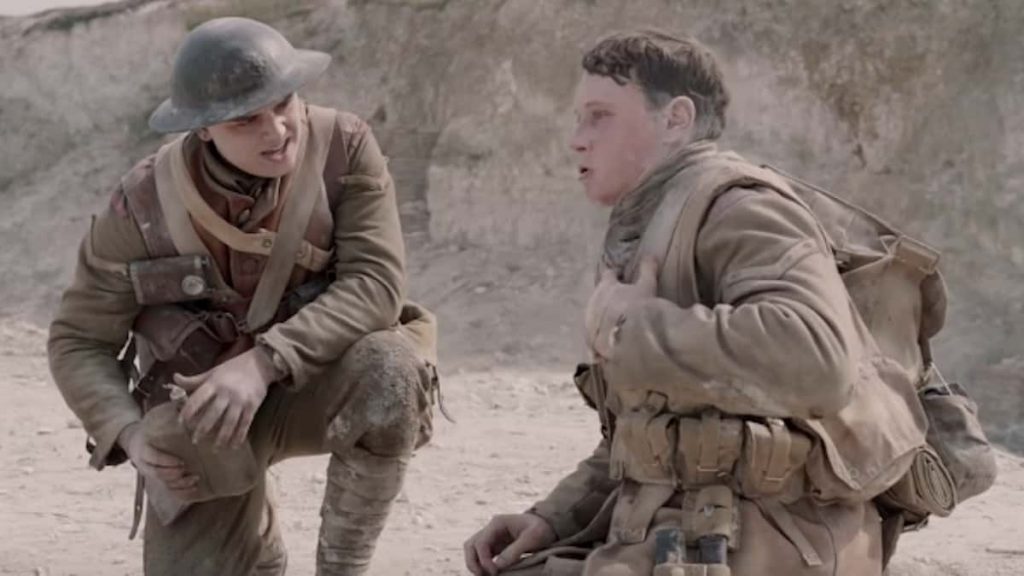
1917, Ford v Ferrari, The Irishman, JoJo Rabbit, Joker, Little Women, Marriage Story, Once Upon a Time… in Hollywood and Parasite
My original frontrunner, “Once Upon a Time…In Hollywood” has faded, and the big momentum is with either “1917” or “Parasite.” I think Oscar voters, with the older voting block, will go with the heart-wrenching World War I epic and be content for “Parasite” to win Best International Feature. While there is always the possibility of an upset, I think the massive endeavor “1917” is deserving.
Best Director
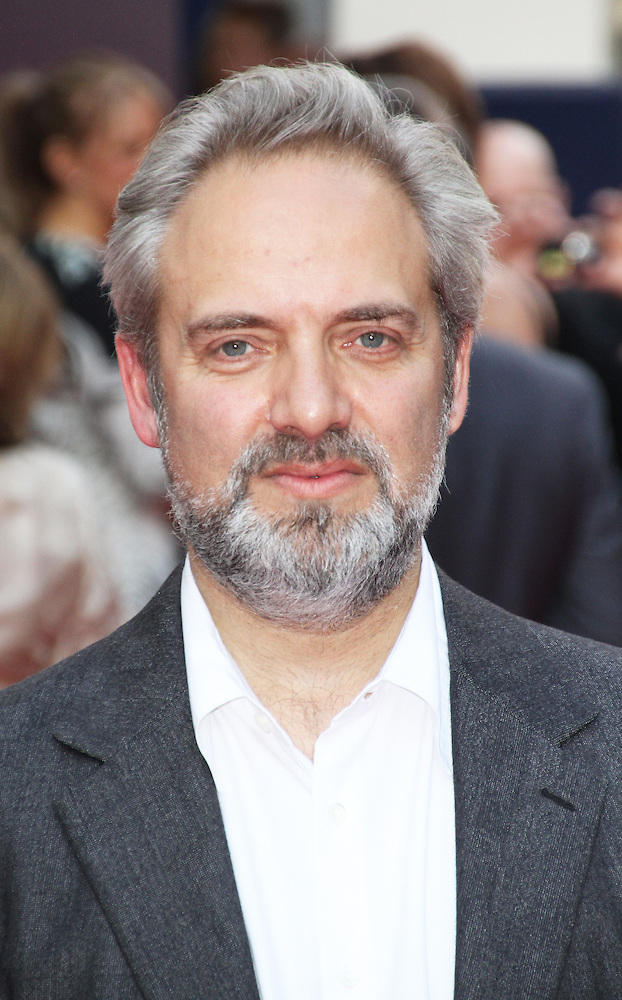
Sam Mendes, “1917”; Martin Scorsese, “The Irishman”; Todd Phillips, “Joker”; Quentin Tarantino “Once Upon a Time…in Hollywood” and Bong Joon-Ho, “Parasite”
I am in the “Sam Mendes is a genius” camp but Bong Joon-Ho’s work in “Parasite” is worthy too. Both are innovative, visual artists. I’d like a tie, like Critics Choice Association. I’m going with Mendes, as he won Directors Guild of America, the big prognosticator.
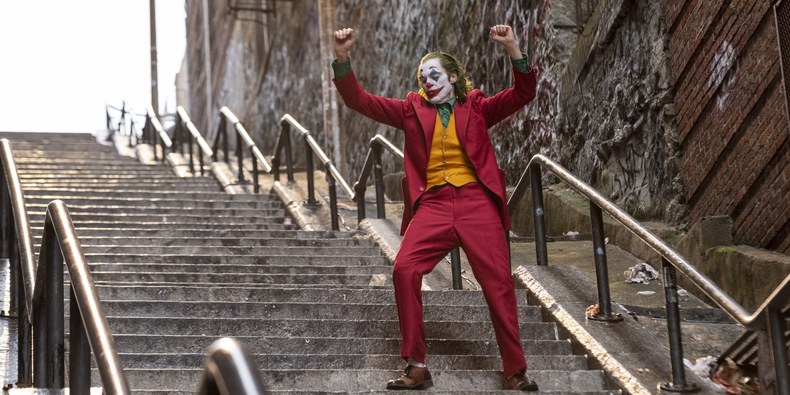
Best Actor
Antonio Banderas, “Pain and Glory”; Leonardo DiCaprio “Once Upon a Time…in Hollywood”; Adam Driver, “Marriage Story”; Joaquin Phoenix “Joker”; Jonathan Pryce “The Two Popes.”
Hands down, Joaquin Phoenix. He gave us pathos as he showed Joker’s pain behind the façade and made his descent into madness frightening. Nobody is more fearless working in film today. Adam Driver would be a close second for his acting showcase in “Marriage Story.”
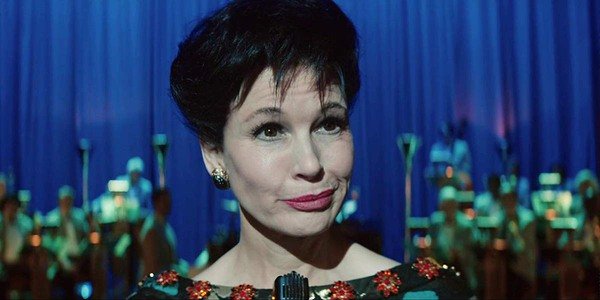
Best Actress
Cynthia Erivo, “Harriet”; Scarlett Johansson, “Marriage Story”: Saoirse Ronan, “Little Women”; Charlize Theron, “Bombshell”; Renee Zellweger’s “Judy.”
Not a fan of Renee Zellweger’s “Judy” but she has won all earlier awards, and I see no reason why she wouldn’t. However, my pick would be the radiant Saoirse Ronan for “Little Women.” If there is an upset, Scarlett Johansson – finally nominated – would be a worthy winner for her tour de force in “Marriage Story.”
Best Supporting Actor
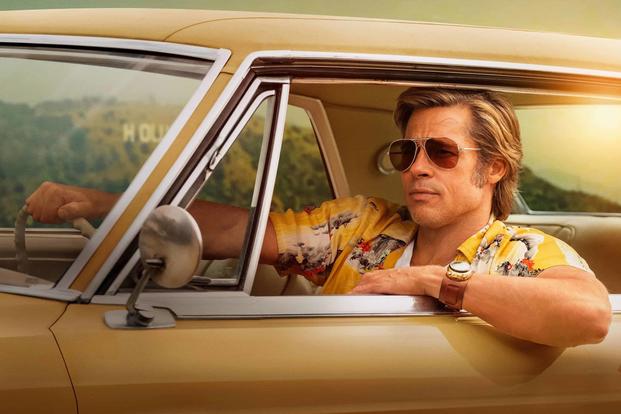
Tom Hanks, “A Beautiful Day in the Neighborhood”; Anthony Hopkins, “The Two Popes”; Al Pacino “The Irishman”; Joe Pesci “The Irishman”; Brad Pitt, “Once Upon a Time…in Hollywood.”
Perhaps the only sure thing Oscar night, Brad Pitt is a lock as stuntman Cliff Booth. He’s not just deserving but overdue. Besides, he’s certain to give the best speech of the night, given his track record this awards season.
Best Supporting Actress
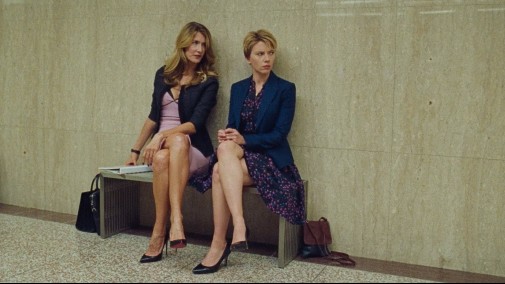
Kathy Bates “Richard Jewell”; Laura Dern, “Marriage Story”; Scarlett Johansson, “JoJo Rabbit”; Florence Pugh, “Little Women”; Margot Robbie “Bombshell.”
While I think the acting Oscars have already been nailed down, this might be the upset category. Laura Dern as the shark lawyer in “Marriage Story,” obsessed with winning at all costs, is my pick, and she was also terrific in “Little Women,” but Margot Robbie’s ambitious Fox News staffer could edge her out or first-time nominee Scarlett Johansson could finally get Oscar love as the mom in “JoJo Rabbit.”
Best Adapted Screenplay
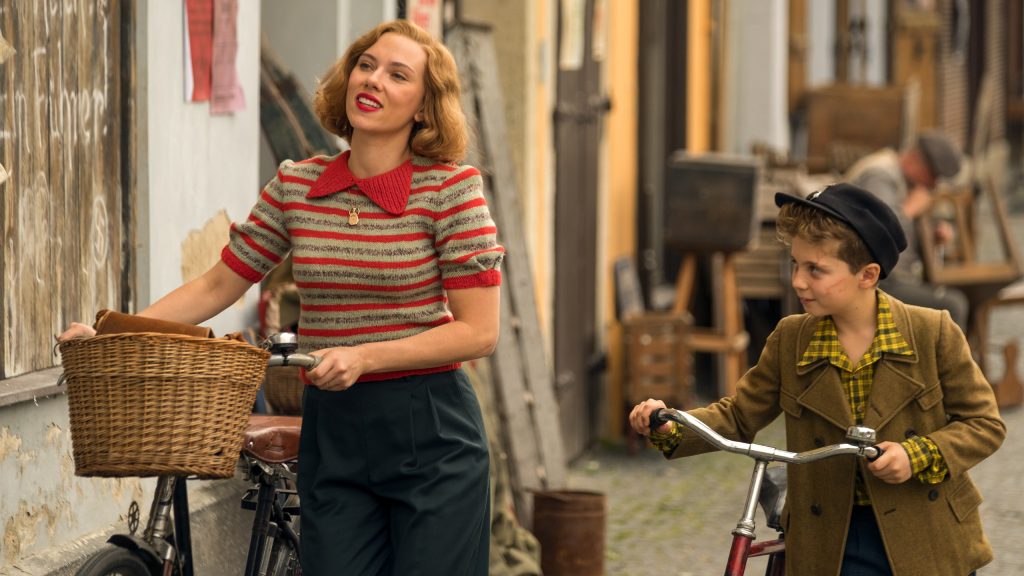
Greta Gerwig, “Little Women”; Andrew McLaren, “The Two Popes”; Todd Phillips, “Joker”; Taika Waititi, “JoJo Rabbit”; Steve Zaillian “The Irishman.”
My favorite is Taika Waititi for the sharp social satire “JoJo Rabbit,” but the revered Steve Zaillian’s adaptation of “The Irishman” could be the film’s only win for its masterful storytelling.
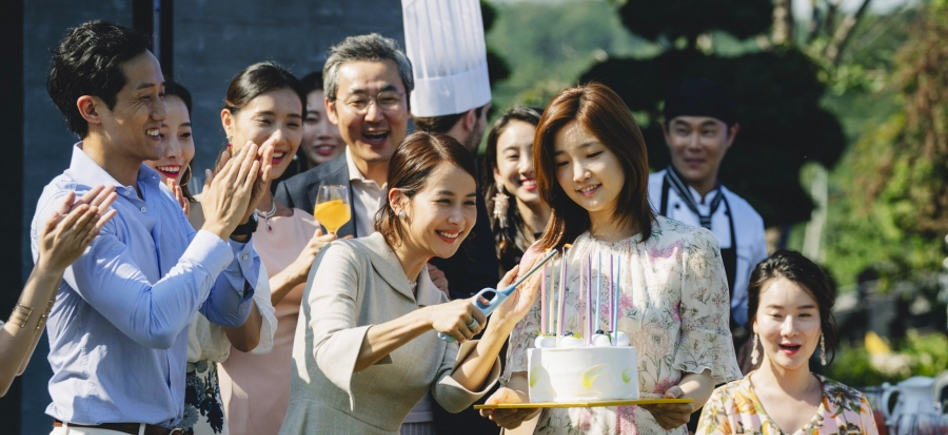
Best Original Screenplay
Sam Mendes and Krysty Wilson-Cairns, “1917”; Noah Baumbach, “Marriage Story”; Rian Johnson, “Knives Out”; Quentin Tarantino, “Once Upon a Time…in Hollywood”; Bong Joon-Ho and Han Jin Wan, “Parasite.”
Best Cinematography
1917, The Irishman, Joker, The Lighthouse, Once Upon a Time…in Hollywood.
What Roger Deakins did with “1917” is remarkable and propels him to his second win in three years. He had been snubbed for decades for his tremendous work in Coen Brothers’ films, then started working with director Denis Villeneuve a few years back – and finally won in 2018 for “Blade Runner 2049.” What he achieved with making “1917” appear to have been shot in two takes is incredible.
Best Editing
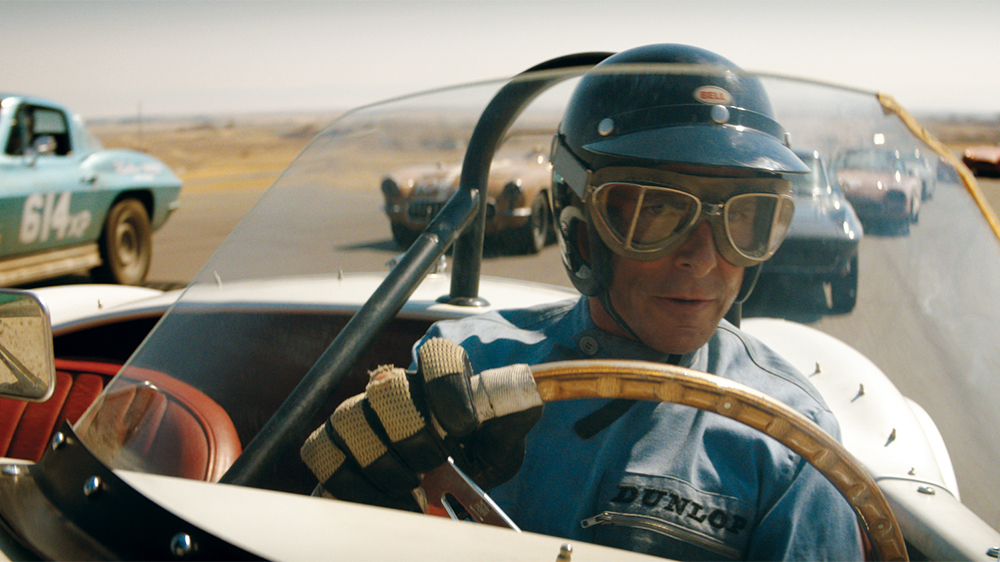
Ford v Ferrari, The Irishman, JoJo Rabbit, Joker, Parasite.
How can “1917” be omitted here? I think a bone should be thrown to crowd-pleasing “Ford v. Ferrari.” This film was a challenging shot, and the editors captured both the thrill and danger of endurance racing.
Best Production Design
1917, The Irishman, JoJo Rabbit, Once Upon a Time…in Hollywood, Parasite.
For its meticulous research and replica of 1969 Hollywood, it must be “Once Upon a Time in Hollywood.” However, the house in “Parasite” and all the trenches and realistic war landscape in “1917” make the case for those films.
Best Music Score
1917, Joker, Little Women, Marriage Story, Star Wars: The Rise of Skywalker.
Previously, I thought it was a battle between the Newman generations – Randy for
“Marriage Story” and Thomas for ‘1917.” But now I’m in support of Hildur Gudnadottir
winning for “Joker.’ From Iceland, Gudnadottir won the Emmy and Grammy for HBO’s
“Chernobyl” and the Golden Globe and BAFTA for “Joker.” She’d be the first solo
woman to win this Oscar, and I can get behind that.
Best Song
“I Can’t Let You Throw Yourself Away Again,” Toy Story 4; “I’m Going to Stand with You,” Breakthrough; “Into the Unknown,” Frozen II; “(I’m Gonna) Love Me Again,” Rocketman; “Stand Up,” Harriet.
After much debate — and enjoying the Panic! At the Disco version of “Into the Unknown” a lot, I’m now resigned to Elton John winning for “(I’m Gonna) Love Me Again,” his fourth nominated song but his first with longtime lyricist Bernie Taupin.
Best Costume Design
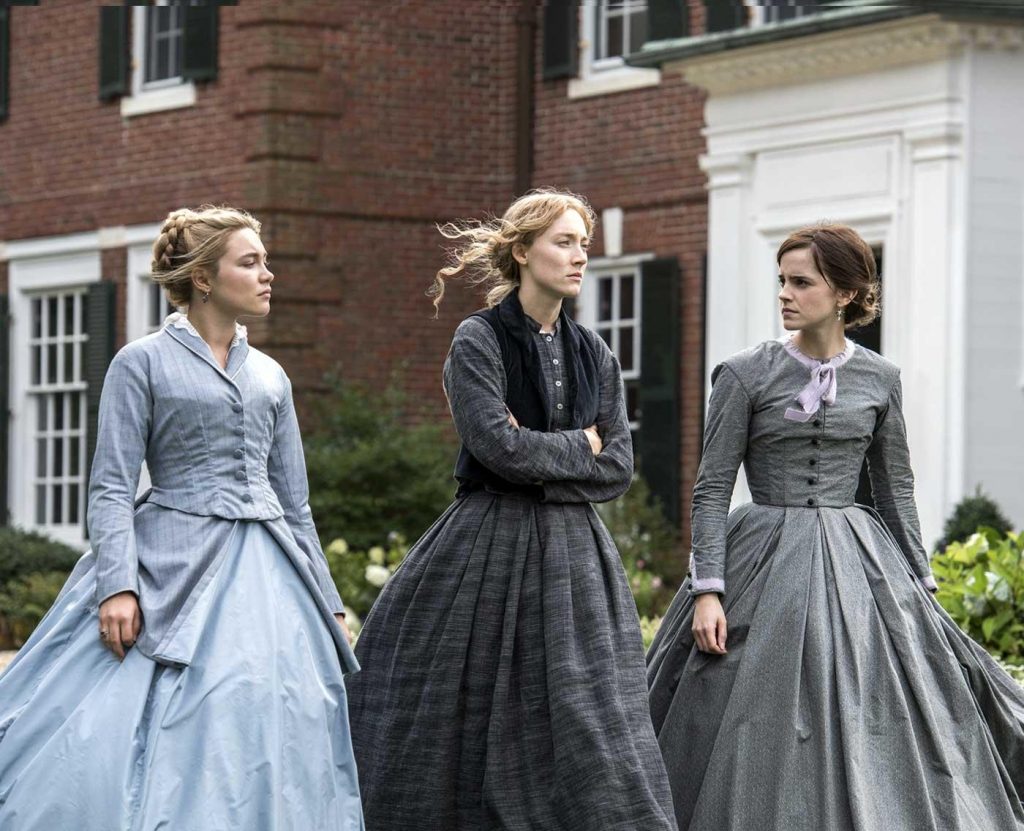
The Irishman, JoJo Rabbit, Joker, Little Women, Once Upon a
Time…in Hollywood.
“Little Women,” of course.
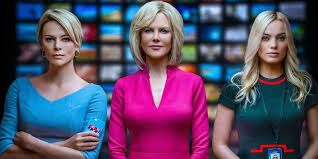
Best Hair and Makeup
1917, Bombshell, Joker, Judy, Maleficent: Mistress of Evil.
“Bombshell” for making the actresses look uncannily like the Fox women they portray, and for turning John Lithgow into a convincing Roger Ailes.
Best Sound Mixing
1917, Ad Astra, Ford v Ferrari, Joker, Once Upon a Time…in Hollywood.
“1917” is the likely winner but “Ford v Ferrari” would be a justifiable winner.
Best Sound Editing
1917, Ford v Ferrari, Joker, Once Upon a Time…in Hollywood, Star Wars: Rise of Skywalker.
Ditto as to what I said about sound mixing.
Best Visual Effects
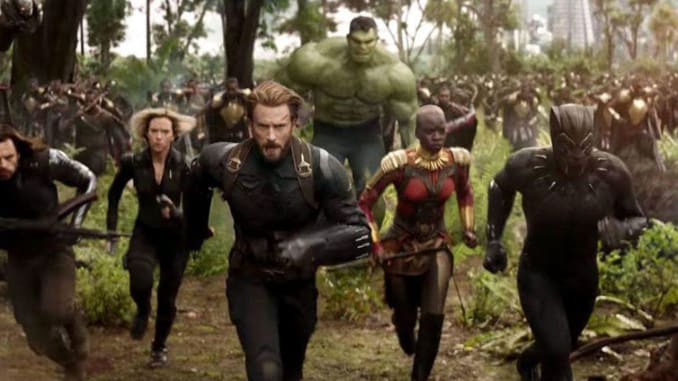
1917, The Avengers; Endgame,” “The Irishman,” “The Lion King” and “Star Wars: Rise of Skywalker.”
“The Avengers: Endgame” was so smooth and seamless, and the CGI not overdone, that I can’t imagine another movie winning. But there is that ninth little movie in a galaxy far, far away.
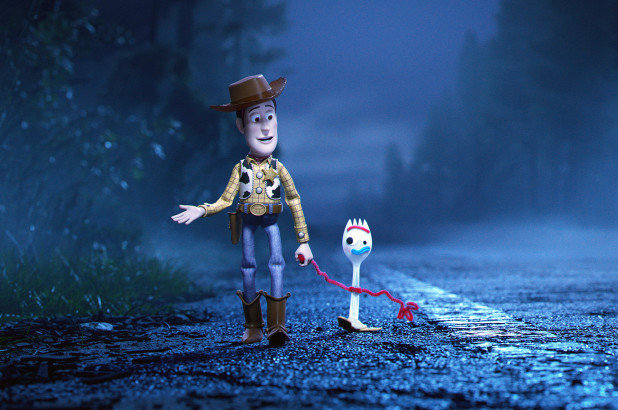
Best Animated Feature
The Hidden Link, How to Drain Your Dragon, I Lost My Body,
Klaus, Toy Story 4.
The fitting and grand finale to one of my all-time favorite franchises, Pixar’s
“Toy Story 4” should win, especially since “Frozen II” was snubbed. But Laika’s
“The Missing Link” is adorable and the final chapter of “Dragon” is its most
captivating.
Best International Feature
Corpus Christi, Honeyland, Les Miserables, Pain and Glory, Parasite.
The safest bet is South Korean’s “Parasite.” What a genre-bending masterpiece – its mix of comedy, drama, thriller and horror is one that will linger in your head for days.
Best Documentary Feature
American Factory, The Cave, The Edge of Democracy, For Sama, Honeyland,
Without the magnificent “Apollo 11” even nominated, I’ll give “American Factory” the edge, although “Honeyland,” about ancient beekeeping traditions in has a lot of love (which I don’t share). Netflix’s “American Factory” is about a re-opened plant in Ohio now owned by Chinese businessmen, and the culture clash that develops. It is produced by Michelle and Barack Obama’s company Higher Ground.
Best Documentary Short
In the Absence, , Learning to Skateboard in a War Zone if You’re a Girl, Life Overtakes Me, St. Louis Superman, Walk Run Cha Cha.
As much as we’d love to see “St. Louis Superman” get national attention, it does have a questionable ending – and really, “Learning to Skateboard in a War Zone If You’re a Girl” appears to be headed for the win.
Best Live-Action Short
Brotherhood, Nefta Football Club, The Neighbors’ Window, Saria, A Sister.
This is one of those Oscar pool contest busters –usually the wild card. Although I’ve read “Saria” is gaining traction, I’m going with “The Neighbor’s Window” because, while its less of a gut-punch than the others, it seems the most unconventional. Overall, it’s a really depressing bunch.
Best Animated Short
Dcera, Hair Love, Kitbull, Memorable, Sister.
Often whatever Pixar short is before Disney’s blockbuster
is the safe choice, but the studio didn’t put anything before “Toy Story IV” or
“Frozen II.” Pixar’s “Kitbull” is hand-drawn and about the friendship of a
kitten and an abused pitbull. Adorable, right? But “Hair Love,” about a dad’s
effort to braid his daughter’s hair, which was shown before “Angry Birds 2,” is
my choice for the gold.

Lynn (Zipfel) Venhaus has had a continuous byline in St. Louis metro region publications since 1978. She writes features and news for Belleville News-Democrat and contributes to St. Louis magazine and other publications.
She is a Rotten Tomatoes-approved film critic, currently reviews films for Webster-Kirkwood Times and KTRS Radio, covers entertainment for PopLifeSTL.com and co-hosts podcast PopLifeSTL.com…Presents.
She is a member of Critics Choice Association, where she serves on the women’s and marketing committees; Alliance of Women Film Journalists; and on the board of the St. Louis Film Critics Association. She is a founding and board member of the St. Louis Theater Circle.
She is retired from teaching journalism/media as an adjunct college instructor.